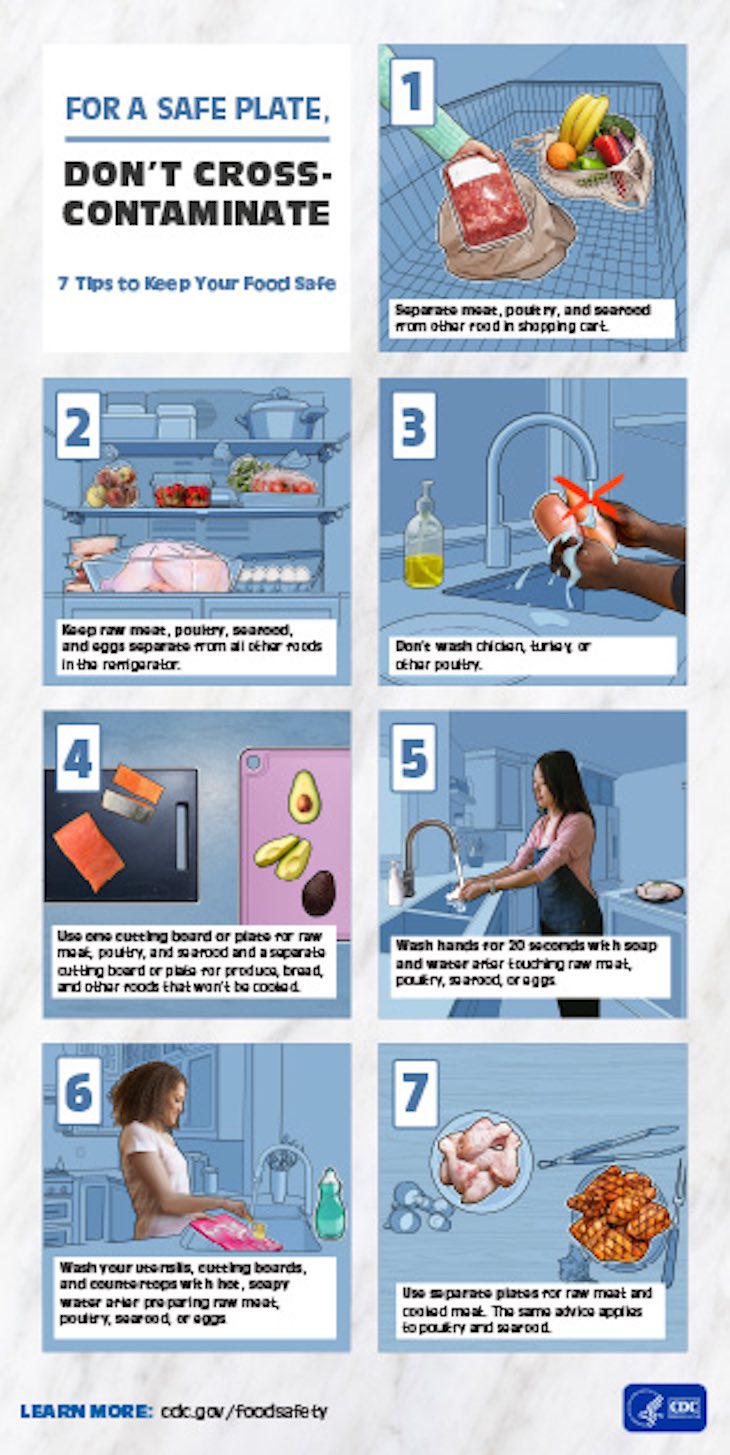September is Food Safety Education Month. And it’s a good time to learn about how to stay safe in the kitchen. First up, learn how cross-contamination can make you sick and how to avoid it with tips from FoodSsfety.gov.

Cross-contamination occurs when raw foods such as meats, poultry, seafood, and shell eggs, or juices or drips from those products, come into contact with foods that are eaten uncooked, with kitchen surfaces, with your hands, and with utensils and plates. Other surfaces that can be contaminated include cutting boards, cupboard door handles and pulls, the kitchen faucet, and the kitchen sink.
Bacteria that can cross-contaminate foods include E. coli O157:H7, Salmonella, Campylobacter, Clostridium perfringens, and Listeria monocytogenes. And they can all make you very sick. Every year about 48 million Americans get food poisoning. And most of those illnesses are not linked to an outbreak; they are just individual people who get sick, from mishandling food, cross-contamination, or eating improperly cooked food.
The key is to be aware of what you’re doing when you are handling potentially problematic foods. And that starts at the grocery store.
At the store, separate raw meat, poultry, eggs, and seafood from other foods. Put them into the plastic bags the store provides, and put your hand into the bag, pick up the food, and then pull the bag over the food so you don’t contaminate your hands. Keep these raw foods away from other foods when you are bagging them too.
When you get home, put perishable foods into the fridge and freezer immediately. And be careful how you store them. Never put raw meats, poultry, eggs, and seafood on a shelf above produce or cooked ready-to-eat foods, since juices from those foods can drip onto the other foods and cause contamination.
When you work with raw meat, poultry, seafood and eggs, keep them separated from other foods. Use a separate cutting board when you work with those foods. Try to avoid touching other kitchen surfaces while you are working.
After you are done preparing the problematic foods, wash your utensils, cutting boards, and countertop with hot soapy water. If you only have one cutting board, wash it thoroughly too. And wash your hands with soap and water for at least 20 seconds. Clean your sink when you are finished cooking.
If you marinate meat, keep it in the fridge. If you want to reuse that marinade, bring it to a full rolling boil before adding it to other foods or serving it. And when grilling, never put grilled foods onto the plate that held the raw foods.
Now that you know how to avoid cross-contamination, you can enjoy your time in the kitchen.




